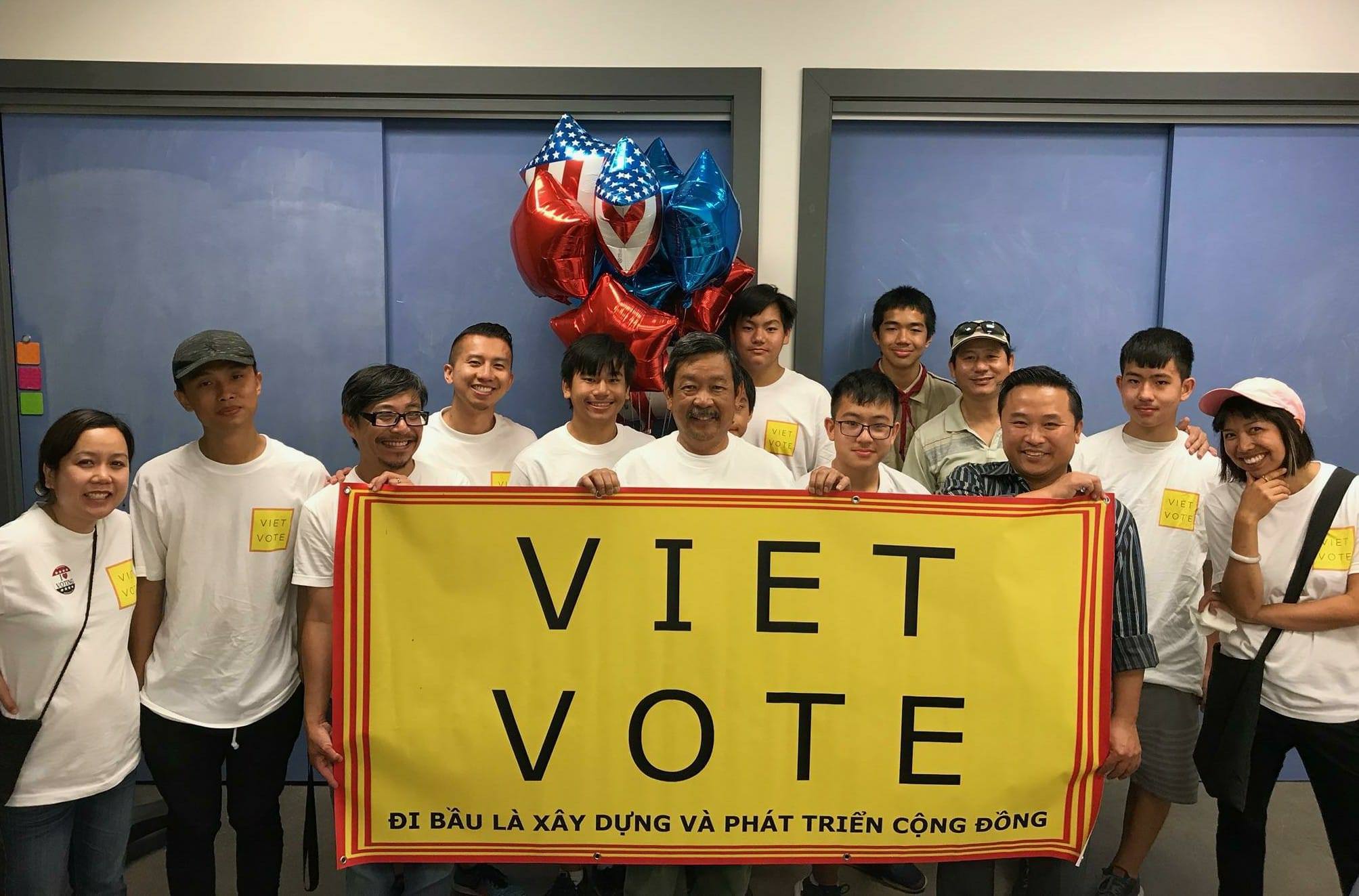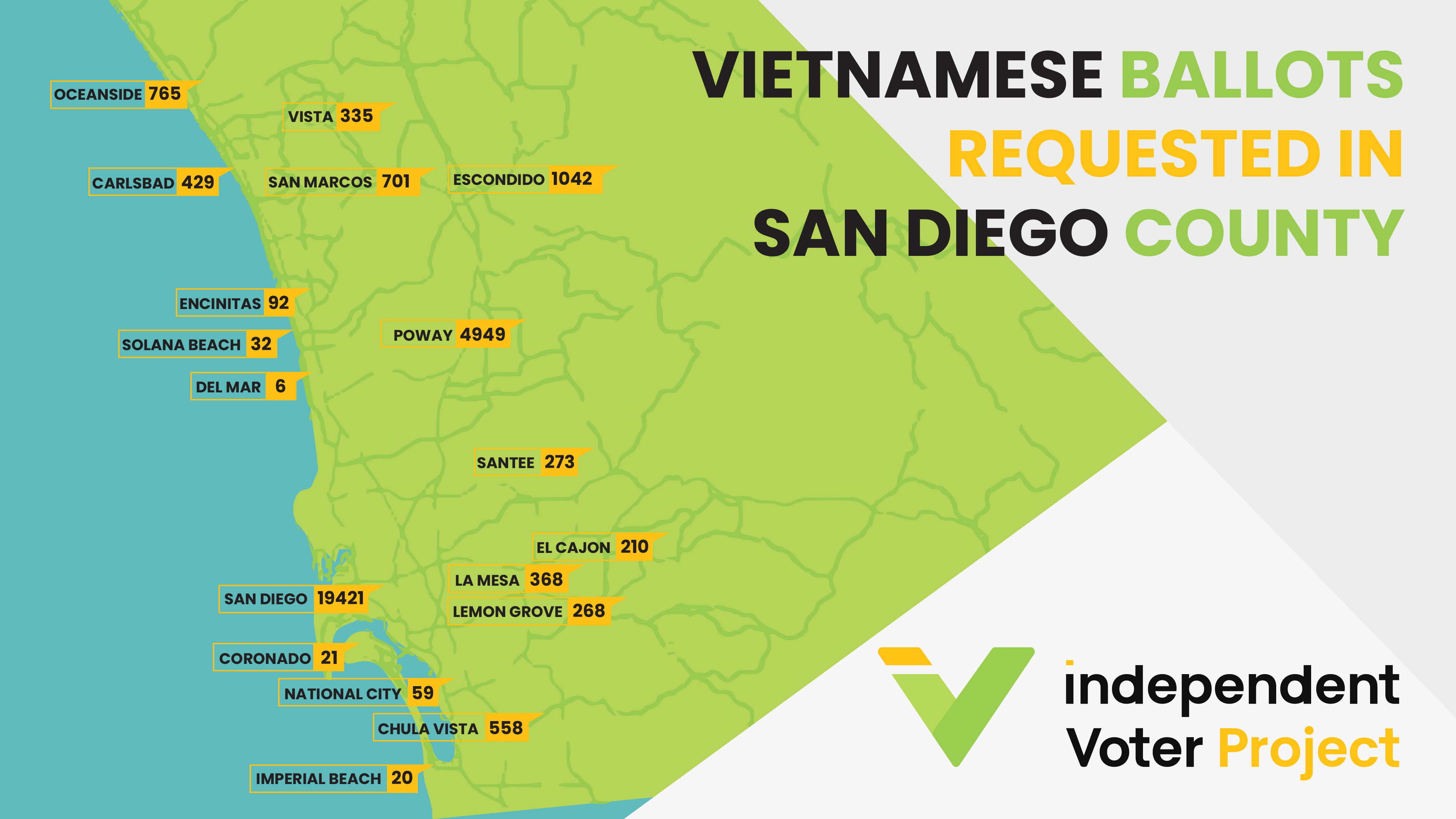From City Heights to City Hall: Viet Vote Aims to Empower Vietnamese Community

Jean-Huy Tran grew up in Orange County, home to more than 200,000 Vietnamese-Americans, one of the largest Vietnamese populations in the U.S. He became accustomed to seeing elected officials of Vietnamese descent in office, including Tony Lam, the first Vietnamese person to hold elected office in the U.S.
But, when Tran made his way to San Diego 15 years ago, he found a different story.
"There are issues the Vietnamese folks around here are not aware of," Tran said. "We pay taxes, yet we don’t benefit from government services. Our local government does a pretty terrible job of reaching out to the Vietnamese community and why should they care about us if we aren’t voting?”
Frustrated by the lack of outreach from City Hall, Tran and a handful of other activists began engaging the Vietnamese community, focusing on City Heights, a diverse neighborhood where immigrants from around the world call home.
In 2019, they established a nonprofit called Viet Vote with the goal of engaging more Vietnamese Americans in the civic process. Tran, the board president, said the only way his community will be able to grab the attention of elected officials is to vote.
"It's really difficult to have a discussion about issues facing the Vietnamese community when our people don't vote," Tran said. "If we don't vote, they don't care about us."
The latest figures provided by the San Diego County Registrar of Voters show only 26,000 registered voters requested their ballot information be in Vietnamese. Of course, this number doesn’t reflect Vietnamese Americans who may vote using English ballots.
Still, Tran said the number of Vietnamese voters could be higher considering more than 47,000 people in San Diego County are Vietnamese, according to the latest U.S. Census figures.

‘It’s Our Job’
Tran, alongside nearly 20 volunteers, have knocked on doors, made phone calls and helped with translation with the goal of educating the Vietnamese community about government issues. He also encourages every citizen to register to vote.
"We can't tell people how to vote but we can educate them on the candidates and the ballot issues," Tran said. "We don't care how they vote. We just want them to vote."
If the Vietnamese community can become more vocal in the civic process, they might see long-desired changes in the City Heights neighborhood, Tran said.
Among the long-desired changes are a community center in City Heights for seniors, fixed streets and increased language accessibility for people of all backgrounds.
“There’s a disconnect between the government and the community and I'm hoping that we can connect the dots,” said Tran. “We need to bring back these essential services to our community. There are many services out there but many people in our community don't know about them because the government doesn't share information in the Vietnamese language. It’s our job to get them to care about us."
Trinh Le — a founding member of Viet Vote and organizing director for the advocacy group, Mid-City CAN — said the Vietnamese community is often overlooked in everyday decision making at City Hall.
“Vietnamese American stories become invisible in policy-making in San Diego,” Le said. “My hope is that Vietnamese folks can be a part of the conversation because immigration doesn’t just affect Latinx folks, it affects Vietnamese folks too. Police reform doesn’t just affect Black folks, it affects Vietnamese too. We need elected officials to take us seriously.”

Connecting Generations
For Vannie Pham, a community activist, the goal of Viet Vote is more personal. For her, Viet Vote is about connecting the younger Vietnamese generation with the older generation.
Pham spoke about the cultural shift of living in Vietnam compared to the U.S., where Americans are encouraged to speak freely.
“We don’t see a lot of Vietnamese people in politics or advocating for themselves — though I do see that slowly changing,” Pham said. “It’s also been helpful to connect the younger Vietnamese generation with the older Vietnamese generation because their perspectives are very different, but necessary to bridge gaps in understanding and to address needs.”
Pham said she wants to encourage the older generation of Vietnamese Americans to share their opinions.
“I want them to know their opinions matter here,” said Pham. “Even if they were immigrants or refugees, and are unfamiliar with politics, I want them to know their voice matters.”
And, if they won’t personally speak up, Viet Vote’s board president Tran said he will.
“I get a lot of calls asking for help with translation or understanding something within the government — I’ll always help them,” Tran said. “I really don’t mind. I translate for my mother all the time, what’s a few more people?
“I just don’t want anything happening to my people.”





